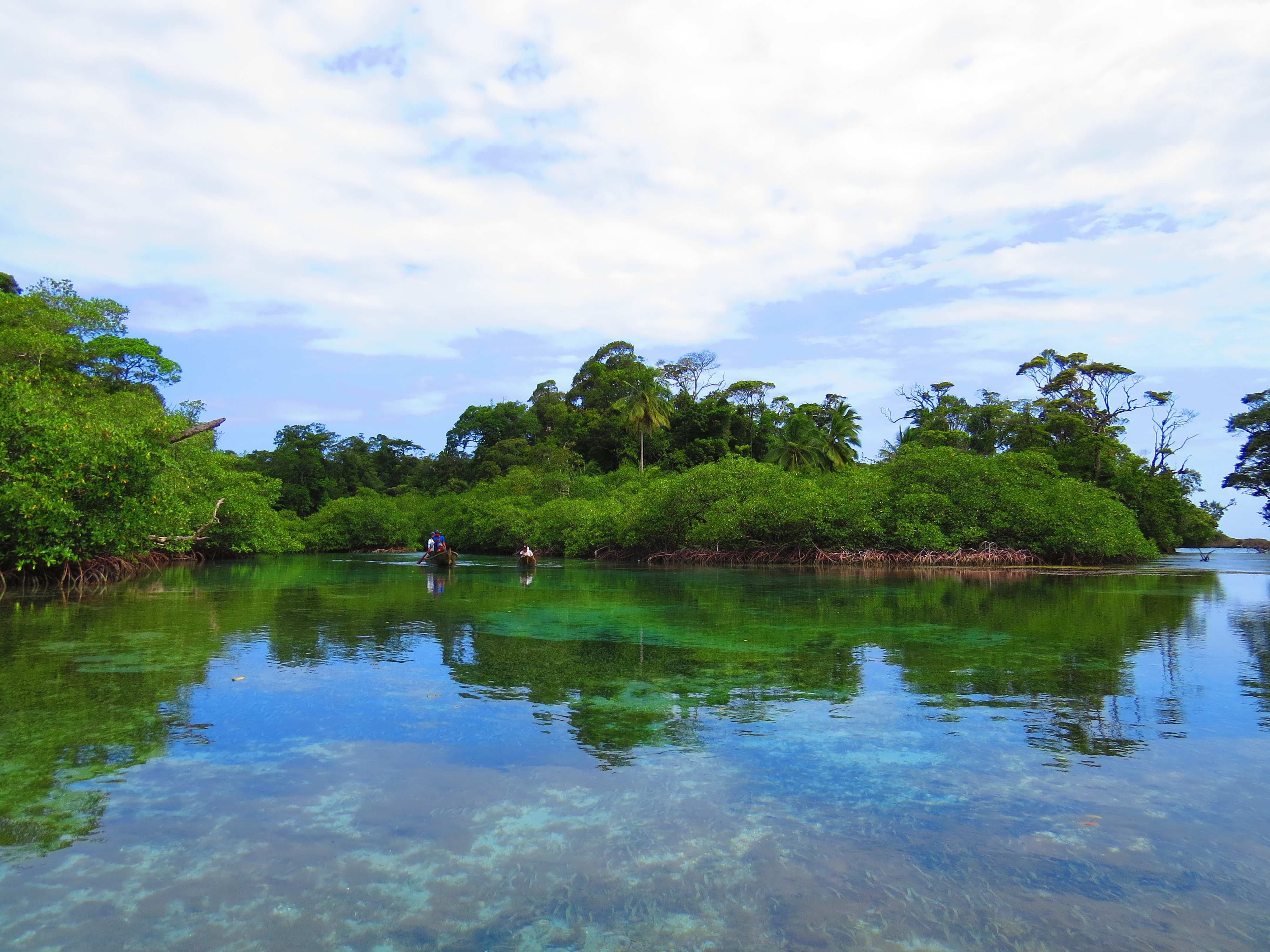Isla Escudo De Veraguas on:
[Wikipedia]
[Google]
[Amazon]


 Isla Escudo de Veraguas is a small (4.3 km2) isolated
Isla Escudo de Veraguas is a small (4.3 km2) isolated


 Isla Escudo de Veraguas is a small (4.3 km2) isolated
Isla Escudo de Veraguas is a small (4.3 km2) isolated Caribbean
The Caribbean (, ) ( es, El Caribe; french: la Caraïbe; ht, Karayib; nl, De Caraïben) is a region of the Americas that consists of the Caribbean Sea, its islands (some surrounded by the Caribbean Sea and some bordering both the Caribbean Se ...
island of the Republic of Panama
Panama ( , ; es, link=no, Panamá ), officially the Republic of Panama ( es, República de Panamá), is a transcontinental country spanning the southern part of North America and the northern part of South America. It is bordered by Cos ...
. Despite its name, it is not part of the province of Veraguas
Veraguas () is a province of Panama, located in the centre-west of the country. The capital is the city of Santiago de Veraguas. It is the only Panamanian province to border both the Atlantic and Pacific oceans. It covers an area of 10,587.6&nb ...
, but rather Bocas del Toro. Although located only 17 km from the coastline in the Golfo de los Mosquitos and isolated for only about 9000 years, several animals found on the island are distinct from their mainland counterparts, and two mammal species or subspecies are recognized as occurring only on the island: the fruit bat '' Dermanura watsoni incomitata'' and the sloth ''Bradypus pygmaeus
The pygmy three-toed sloth (''Bradypus pygmaeus''), also known as the monk sloth or dwarf sloth, is a sloth endemic to Isla Escudo de Veraguas, a small island off the Caribbean coast of Panama. The species was first described by Robert P. And ...
'' (also known as the pygmy sloth). These two taxa and the worm salamander ''Oedipina maritima
''Oedipina maritima'', commonly known as the maritime worm salamander, is a species of salamander in the family Plethodontidae. It is endemic to Isla Escudo de Veraguas, Panama.
Description
''Oedipina maritima'' is a small salamander species: ma ...
'' are all considered to be critically endangered due to their being unique to the small island. Other mammals found on the island include the bats ''Glossophaga soricina
Pallas's long-tongued bat (''Glossophaga soricina'') is a South and Central American bat with a fast metabolism that feeds on nectar.
Metabolism
It has the fastest metabolism ever recorded in a mammal, similar to those of hummingbirds. Althou ...
'', '' Micronycteris megalotis'', ''Carollia brevicauda
The silky short-tailed bat (''Carollia brevicauda'') is a bat species found in Bolivia, Brazil, Colombia, Ecuador, French Guiana, Guyana, Panama, Peru, Suriname, Mexico and Venezuela
Venezuela (; ), officially the Bolivarian Republic ...
'', '' Myotis riparius'', and ''Saccopteryx leptura
The lesser sac-winged bat or lesser white-lined bat (''Saccopteryx leptura'') is a bat species of the family Emballonuridae from South America, South and Middle America (Americas), Middle America.
Description
The lesser white-lined bat belon ...
'', the spiny rat ''Hoplomys gymnurus
The armored rat (''Hoplomys gymnurus'') is a species of rodent in the family Echimyidae. It is monotypic within the genus ''Hoplomys''. It is found in Latin America, from northern Honduras to northwest Ecuador. It possesses a range of spines on ...
'', and the opossum ''Caluromys derbianus
Derby's woolly opossum (''Caluromys derbianus''), or the Central American woolly opossum, is an opossum found in deciduous and moist evergreen forests of Central America, from southern Mexico to western Ecuador and Colombia. It was first descr ...
''.Kalko and Handley, 1994, p. 270 The island has of mangrove forest (the only known habitat of the pygmy sloth) and of coral reef with 55 coral species. It houses over 11,000 species, such as the pygmy sloth. The island has an average high temperature of 23 degrees Celsius and a low temperature of 12 degrees Celsius.
Escudo de Veraguas is traditionally considered the birthplace of the Ngöbe–Buglé people. Until 1995 the island remained largely unpopulated, but since that time Ngöbe–Buglé fishermen from nearby coastal towns moved in, first using the island as a base for fishing parties and later settling permanently. In 2012, about 120 fishermen and their families were settled on the island.
References
Literature cited
* * *Escudo de Veraguas
Isla Escudo de Veraguas is a small (4.3 km2) isolated Caribbean island of the Republic of Panama. Despite its name, it is not part of the province of Veraguas, but rather Bocas del Toro Province, Bocas del Toro. Although located only 17&nbs ...
Bocas del Toro Province
{{BocasdelToro-geo-stub